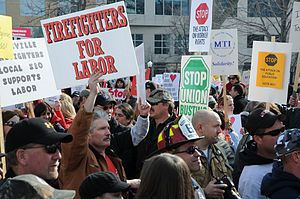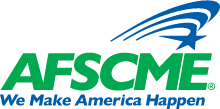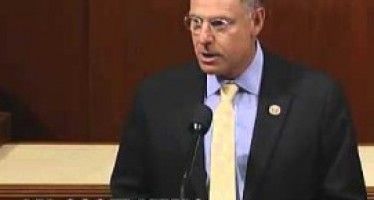Legislative hearings attack Prop. 32
Sept. 27, 2012
By Katy Grimes
SACRAMENTO — Apparently fearing the outcome of the political reform measure Proposition 32, some California lawmakers have added “storyteller” to their resumes.
In one of the most nostalgic fairy tales ever told at a Capitol hearing, it was revealed that all labor unions have voluntary membership,and employee payroll deductions come willingly.
But Prop. 32 is also bringing out the ire in labor union proponents. The idea of political reform doesn’t appear to be agreeing with everyone in the state, and is even making some rather testy.
A mandatory hearing on Wednesday about Prop. 32 found Republicans glaringly absent from the proceedings. While this allowed legislative Democrats unfettered access to the initiative’s proponents, John Kabateck of the National Federation of Independent Business and David Wolfe of the Howard Jarvis Taxpayers Association held their own rather well.
Kabatek and Wolfe easily answered the questions hurled at them, and countered the disinformation in the many pro-union mini-speeches by legislators.
A union fairy tale
Probably the biggest fairy tale at the hearing came from Assemblywoman Susan Bonilla, D-Concord. “It’s very important to understand that union membership is voluntary–no one is forced,” Bonilla said. “It’s a well-established voluntary practice.”
“If a union member objects to dues being used for political spending, the law allows them to opt out,” she said. “These are well-established practices, and clearly laid out, and very transparent to the employees.”
“Then why not just make it an opt-in?” Kabateck asked.
“There is no involuntary collection of money spent on political purposes,” Bonilla retorted. “They have the right to not become members.”
It is worth noting that Bonilla has accepted $108,905 in total political contributions from general trade unions, and $76,675 from public sector unions, according to Maplight.org, which tracks and publishes political contributions and voting trends following contributions.
However, Bonilla was not alone in her grilling.
Prop. 32
If approved by voters in November, Prop. 32 would end the questionable practice of automatic payroll-deducted funds from employee paychecks for political purposes. The prohibition applies to both labor unions and corporations, as well as government contractors.
Prop. 32 also would end union and corporate contributions to political candidates, and would end government contractor contributions to elected officials.
Dems fight back
In a Capitol hearing room of mostly labor union lobbyists, Kabateck explained that, after years of special interest-dominated politics, small businesses and individuals want their voices heard again in politics. “Voters are tired of government gridlock and placing special interests above the individual. Voters are awakening, taking power back, and holding elected officials accountable,” Kabateck said.
In a NFIB member survey, Kabateck reported that 93 percent of respondents supported political reform through Prop. 32. “It will stop ‘money-in, favors out.’ You, not your boss or board, should decide where your vote belongs,” Kabateck said.
The current pay-to-play political system means voters and small businesses are frozen out, Kabateck said. “Convicted teachers can’t even be fired. This is a huge step in political reform to make sure that politicians earn our vote.”
“What public purpose is served by this initiative?” asked Assemblyman Sandre Swanson, D-Oakland. Swanson demanded that Kabateck name the top five largest corporate contributors to the Prop. 32 campaign. When Kabateck answered “Charles Munger,” then hesitated, Swanson said, “You are not embarrassed by the supporters? I’ve seen the advertisements — are they correct?”
Before Kabateck could answer, Swanson continued, “This process needs to be transparent. The process should be transparent.” Swanson then mocked Kabateck and said, “I don’t want to tell you who is funding it.”
Only the day before at a legislative hearing about Proposition 30, Swanson said, ”We are not running the state incompetently. We don’t have enough revenue.”
“The reason he can’t tell you who is funding this is it’s a corporation attached to the Koch brothers,” said Sen. Ted Lieu, D-Torrance.
“Let’s just be honest with the people,” Swanson added.
Swanson’s campaign contributions from labor unions total more than $381,000.
A little honesty
It was unclear why Swanson kept pushing Kabateck to name the top contributors to the “Yes on 32” campaign, as “No on 32” contributors already have thrown more than $41 million into the campaign to defeat Prop. 32, with nearly all contributions coming from labor unions.
Proponents have raised $9 million, of which $4 million comes from the American Future Fund, and $900,000 from Munger.
“Taxpayers are tired of getting the short end of the stick, and they elect all of you,” said David Wolfe. “If they truly believe what unions and corporations are doing, they can give freely.”
“Massive super PACs have taken over the entire political system. This is just flat out wrong,” Lieu said. “Unions are Democratic.”
Lieu’s campaign contributions from unions totals more than $435,000, and perhaps explains his vehement dislike for Prop. 32.
Opponents
“This is not what it seems to be, dressed up as political finance reform,” said Trudy Schaefer of the League of Women Voters. “There are two sets of rules, but this is targeting one set of money. Super PACs will become the way of elections. Californians don’t want to see this.”
“Prop. 32 does not apply to LLC’s or super PACs,” said Derek Cressman of California Common Cause. “One in particular — American Future Fund — gave $4 million. Nobody knows them. But they are tied to the Koch brothers, and the thousands of consumer products they make. This will increase corporate influence and will not increase the democracy of labor unions.”
Armando Guerrero of the Sheet Metal Workers Local 104 said workers rely on unions to fight for them. “Like for FMLA and the prevailing wage they were cheated out of.” FMLA is the Family and Medical Leave Act.
“Can you imagine what this Legislature would look like with unrestricted contributions?” asked Willie Pelote with the American Federation of State, County, and Municipal Employees. “No matter what they do, we’ll never go away.”
After opponents spoke, Assemblyman Paul Fong, D-Cupertino, asked committee members if they had any questions. Silence. Not one of the remaining legislators asked the Prop. 32 opponents a question.
After the grilling Kabateck and Wolfe received from Bonilla, Swanson and Lieu, the legislators’ silence showed the lack of intellectual honesty at this hearing. They know where their bread is buttered.
Swanson said, “Voters can see through all this.”
Related Articles
Super PAC $ floods Peters vs. DeMaio congressional race
San Diego residents can’t watch a major sporting event without seeing repeated ads paid for by national super PACs trashing
GOP doomed no matter what
Nov. 8, 2012 By John Seiler More than by the election, I’m amused by the aftermath comments. Consider this one,
Fleeting hope for fiscal reform
Feb. 28, 2010 Anyone who thinks that gubernatorial candidate Meg Whitman offers much hope for fixing the state’s structural fiscal






